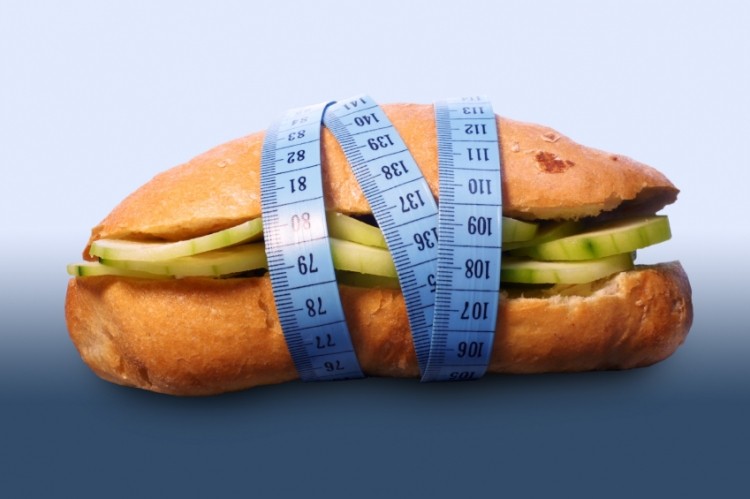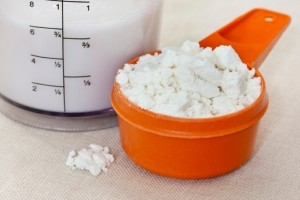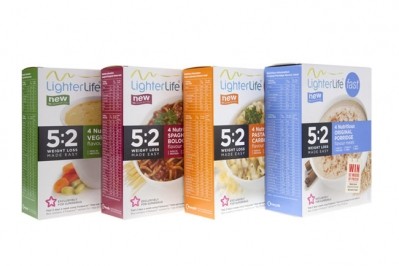600 calories, 75 g protein, 30 g carbs: EFSA issues ‘milestone’ diet replacement opinion

Calorie restricted foods intended to completely replace the diet of overweight and obese people should contain a minimum 75 g of protein – a higher level than the 50 g/day recently established under the EU’s new Food Information for Consumers (FIC) labelling legislation.
The European Food Safety Authority (EFSA) also expressed a preference for higher-quality proteins.
One observer called the opinion a "milestone".
EFSA’s Panel on Dietetic Products, Nutrition and Allergies (NDA), which issued the opinion at the behest of the European Commission, said the products should contain a minimum of 11 g/day of linoleic acid (LA), 1.4 g/day of α-linolenic acid (ALA) “and micronutrients based on reference values established either by the Panel or by other scientific or authoritative bodies.”
The opinion will inform ongoing deliberations about how low-calorie and slimming foods should be regulated in the European Union. Groups like Specialised Nutrition Europe (SNE) have been calling for the legislative ambiguity to be resolved but the Commission said it wanted EFSA’s opinion first, which it now has.
“Total and partial meal replacements represent a significant part of the slimming foods market, notably in Latin countries,” the group told us last year.
What was needed, SNE said, was an “adapted legislative framework that recognises the specific nature of these products and is able to protect consumers against products that do not offer the necessary assurance for their appropriate and effective use in the vulnerable populations that the previous legislation provided for.”
Safe and suitable
More broadly EFSA was clear in stating: “The guiding principle for providing advice on the essential composition of total diet replacements for weight control should be that products are safe and suitable when consumed as a sole source of nutrition for several weeks to months by overweight or obese adults in the context of energy-restricted diets for weight reduction.”
The NDA said the 600 calorie per day figure was determined “from the minimum content of macronutrients” in the foods which should “provide at least the Population Reference Intake (PRI) or the Adequate Intake (AI) for adults of all indispensable nutrients.”
Terms
Population Reference Intake (PRI) is the level of nutrient intake that is adequate for virtually
all people in a population group.
Adequate Intake (AI) is the value estimated when a PRI cannot be established because an AR cannot be determined.
Protein win
The head of nutrition at protein player Volac, Suzane Leser, said the opinion was important for the nutrient her company specialises in.
“It’s an important step for a dietary shift towards higher protein intakes for weight management, arguably more powerful than an approved health claim,” she opined.
There are two approved EU health claims for partial meal replacements and weight reduction and weight maintenance.
The NDA derived a maximum protein input of 105 g/day modelling off an overweight 40-year-old woman with a body mass index of 25 kg/m2. “This value is similar to the highest protein intakes investigated in the published studies with no apparent adverse effects,” it wrote.
Glycaemic carbohydrates
The opinion noted concern about carbohydrate restriction and carb-protein balance. “…the absence of carbohydrates in total diet replacements for weight control may carry a higher risk of severe ketoacidosis.”
Bodily nitrogen levels were also addressed, as they were with protein input.
“Considering that up to 80 % of the energy requirement of the brain of around 2 092 kJ/day (500 kcal/day) can be supplied by ketone bodies, there remains a demand for, about 25‑30 g of glucose that can be produced via gluconeogenesis from glycerol and amino acids or be supplied by the diet,” the NDA said. “In order to keep the need for gluconeogenesis low, the Panel proposed a minimum content of digestible carbohydrates of 30 g/day.”
Fibre, fat
It said there wasn’t enough evidence to establish a minimum daily level for dietary fibre. There also wasn’t enough evidence to establish a fat intake minimum due to uncertain adipose fat release levels in the body. But LA and ALA minimums were set (as above).
The Panel emphasised total diet replacements were not intended to be used by "normal-weight adults, infants, children, adolescents, pregnant or lactating women and the elderly." Obese and overweight people with medical conditions like diabetes, gout, thyroid disease, kidney disease, liver disease, cardiovascular disease and gallstones were also advised not to try the diets unless given the ok by a physician first.
Duration
It emphasised that total diet replacements for weight control are used for short periods of time - usually three months or less. "The nutrient content may not necessarily be appropriate when these products are consumed for prolonged or repeated short periods of time."
It noted the paucity of studies on the diets of more than eight weeks, and therefore stated "there is no scientific evidence which supports the current provisions that labelling of low-calorie diets should inform consumers that low-calorie diets should not be used for more than three weeks without medical supervision."
"In particular, studies which investigated critical endpoints, such as the effect of total diet replacements for weight control on calcium loss and bone health, have not been conducted for periods longer than eight weeks."
Fluid intake from all sources was set at 2.5 L and 2.0 L/day for adult men and women respectively.
The full report is here:



























